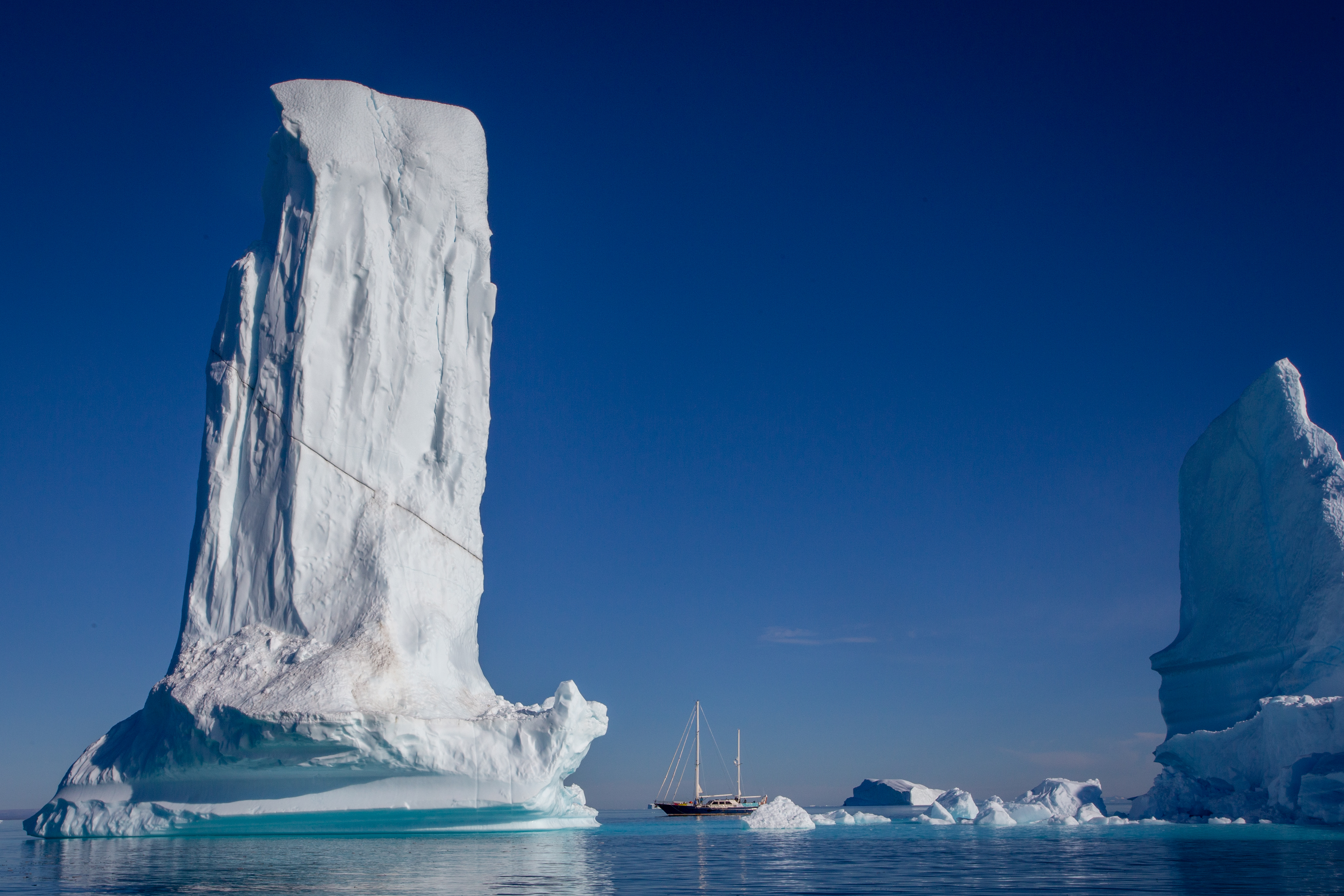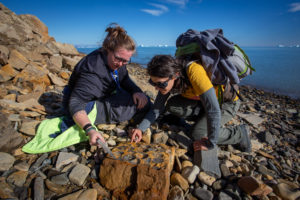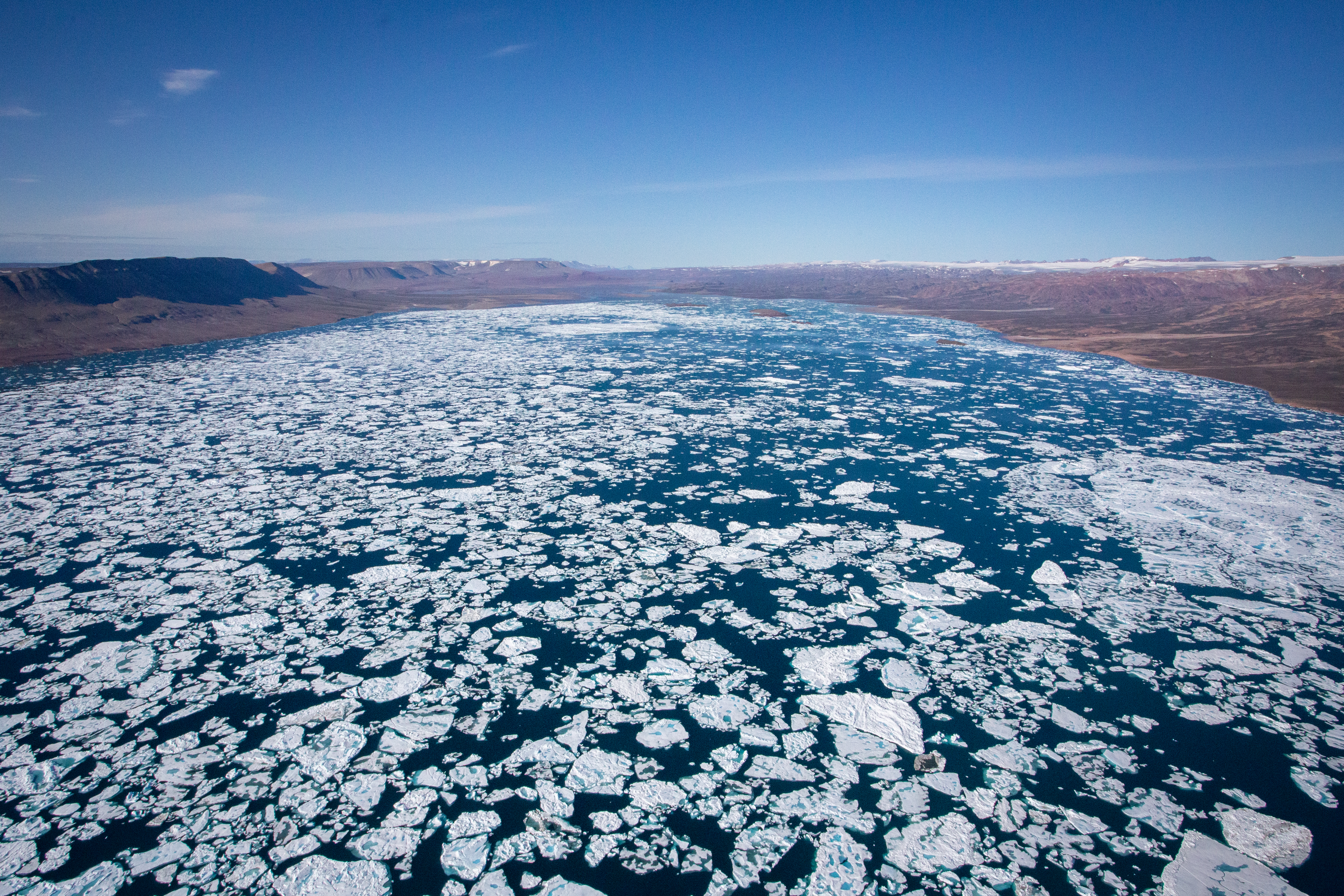Studying the past of ecosystems to better adapt and give a voice to communities on the front line of climate change.
The setec Foundation is supporting Greenlandia, a scientific expedition to Greenland which aims to anticipate changes and adaptations linked to the climate crisis. The expedition aims to put the voice of a community on the front line of climate change at the heart of this issue: the population of Ittoqqortoormiit.
Discover the story and feedback from the expedition.

The setec Foundation is supporting a fine scientific project, “Greenlandia”, run by the “Innovations Bleues” association, promoting eco-innovation, a more environmentally-friendly approach to the sea, rivers and coasts, and sustainable management of maritime, river and coastal areas.
The “Greenlandia” project, financed by the setec Foundation, supports scientific research while giving a voice to a Greenlandic community on the front line of climate change. An annual maritime scientific expedition, usually carried out in August, enables us to study and understand the evolution of climate disruption and its consequences, which are forcing this community to adapt. This invaluable data is then disseminated to schoolchildren, and documentaries are produced. The primary aim of this meaningful project is to anticipate changes and adaptations in response to the climate crisis.
Greenlandia works with a wide range of scientists, the Museum of Natural History and various media.
We were fortunate, the Foundation’s operational team and Audrey Patucca, the project’s godmother, to receive feedback from those involved in the expedition.
So here’s what happened
Scientific teams with different areas of expertise took turns throughout the expedition:
Marine biology
Paleontology
Micropalaeontology
Geology
Several observations were made, such as the certainty that Greenland was a green island where all kinds of plants grew. Scientists discovered and brought back fossil samples and a tree stump dating back thousands of years.

Alongside these observations, a study is being carried out on microalgae present on the ice. These organisms are also present in the Alps and are also being studied. The first finding is that the dark color of these microalgae colors the ice, making it darker and, in this sense, capturing much more heat. This phenomenon increases the rate at which the ice melts. Samples were taken in Greenland because it is a special environment. In fact, the ice is in direct contact with the ocean, enabling a targeted study of the correlation between the microalgae present on the ice and those at sea. It is also an opportunity to draw a parallel with the same phenomenon in the Alps.
Another study focuses on fog forming on the water surface. This is due to global warming. Modelling will be carried out.
Marine ecology is also an important pillar of Greenlandia. In fact, the Fjorgs are brimming with traces of past events. Scientists have fished for polar cod to understand their importance in the ecosystem, as they are a staple food for many species.
Participatory science was put to the test between scientists and local hunters.
Hunters were asked to collect seal stomachs to study their feeding habits. This is also a key parameter for understanding the impact of climate change on these species.
In another rather alarming development, a significant level of chemical pollution was found in the blood of local residents. The cause will be investigated.
All the samples taken have been taken to laboratories for study.

Plus
3 AFP journalists and a film crew have been taken on board to make an Arte documentary to be broadcast in April – May 2024. Part of the Greenlandia team will also be taking part in the first Polar Lands Summit. What’s more, the project has been widely covered by the media:
- Geo : Des scientifiques bravent le danger pour étudier l’écosystème du Groenland, en péril face au réchauffement climatique – Geo.fr
- Le Point : Une mission scientifique au coeur des plus grands fjords du Groënland, sanctuaire en péril (lepoint.fr)
- Humanité : L’initiative Greenlandia au cœur des grands fjords du Groenland (humanite.fr)
- O Globo : Scientists voyage to Greenland’s melting sanctuary (france24.com)
- France 24 : Scientists voyage to Greenland’s melting sanctuary (france24.com)
- Journal de Montréal : Une mission scientifique au coeur des plus grands fjords du Groënland | JDM (journaldemontreal.com)
Further information
In terms of transmitting knowledge and raising awareness, a school exchange took place between students from a middle school in Brittany and one in Ittoqqortoormiitt. A rich and enriching experience for the younger generation, with the discovery of an environment unknown to them.
Audrey Patucca, the project’s godmother, is invited on October 12 and 13 for a screening and a day with the MNHN in Paris.
More information on LinkedIn : (1) Greenlandia : Présentation | LinkedIn
And website : Greenlandia | Notre futur s’explore aujourd’hui !
